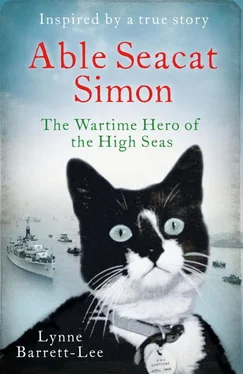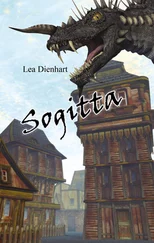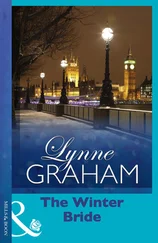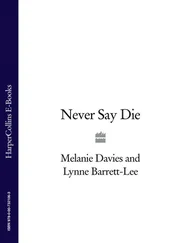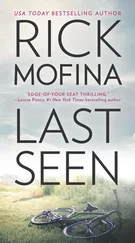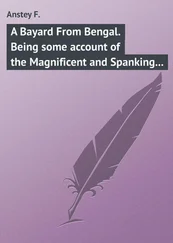My first proper sighting of our new captain, a tall man called Lieutenant Commander Kerans, was when I limped onto one of the gun decks a few hours later, feeling compelled to find my friends again. And I found the ship’s company (such as it was, for by now I knew many of my friends were probably missing, or injured and down in the sick berth) had been mustered to attend what was clearly a very sombre gathering. Judging from the light – a murky charcoal, which the sun struggled to penetrate – it was now late in the afternoon. It was the first time I’d seen most of them in three days.
It had been a long walk to rejoin my company, every step sending knives of pain shooting through my hindquarters, and I’d had to sink down and catch my breath often. My skin stung – it was now clear that I’d lost quite a lot of fur – and I was so parched that I’d been driven to cast around the deck and try to lick up any beads of moisture I could find. But the sound of voices drove me on, and after I had no idea how long, I was rewarded by the first glimpse of my friends.
I would make it to the end guardrail above the gun deck, I decided. I kept my eyes on it, as if it were some kind of prize, limping slowly along the hull, keeping close to the bulkhead, feeling my back legs at every step quivering and protesting beneath me, and eventually found myself looking down at a dizzying blur of white.
I blinked painfully, trying to reconcile what I was seeing with what had happened. To square what I’d heard and learned with what I gazed down upon now. The remaining crew – much reduced – were all decked out in their white uniforms. They looked crisp and impossibly shipshape in their finery, and, to a man, they stood rigid and unsmiling.
It was impossible not to contrast them with the post-attack Amethyst : wounded, broken, lying up – licking its own wounds. Yet here were so many of my dear friends, gathered upon her battered deck, almost like a flock of beautiful white birds. Yes, they were bent and broken too, but they were also standing tall, managing to find strength and dignity from somewhere.
All thoughts of my own pain were spirited away then, because it was only now that I realised what I was witnessing. For in his hands, our new captain held what I knew to be the ship’s Bible.
Seeing that particular book lying open in his hands, I couldn’t help but find my eyes drawn behind him, where a line of low, sheet-covered mounds stretched along the gun deck. My friends’ bodies.
I couldn’t take my eyes off them, not for a long time, struck by the precision with which they had been arranged, by their shape, by their stillness. Which were they? Who was missing from the assembly?
There were so many men missing – many more than this number, surely? – that, apart from those I knew about, it would be impossible to work out who had died these past three days. I would find out; that wretched information would all too soon be known to me. In the meantime, I must do the same as my friends below me. Pay my respects and wish them peace where they were going.
Heads were lowering now, and a new solemnity fell upon the gathering. As I watched and listened, the captain speaking in tones mostly too low for me to catch them, the first body was committed to the river by a burial party of four ashen-faced men. Familiar faces, one I recognised as one of the ordnance men, Leighton, whose job today was to lash one of his shells to each sailor, to weigh them down – a bitter irony indeed. By the time they were done, the sun had dipped below the horizon.
And the sailors laid to rest at the bottom of the Yangtse River had numbered seventeen.
Though it seemed unimaginable for such a thing to happen, in the grim days that followed that terrible funeral service, I found myself grateful for the rats. For it was undoubtedly the rats – now my mortal enemy and my naval duty – that gave me the will to recover. I knew I must recover, at least enough to find the strength to hunt them down and, hopefully, kill enough of them to make it clear to the rest that they were not going to take over the Amethyst .
We were trapped on the Yangtse. That much had been easy to establish. Time and again, some effort was made to free the ship, and as sure as the sun rose every morning, hazy and ineffectual, we’d be fired on by the communists on the north bank. Even so, there was work to be done on deck – urgent work – so what was left of the crew (less than half the ship’s company, I estimated) were labouring at all hours, courageously, right in the enemy’s sights, doing what was needed to make the ship seaworthy again. They were stuffing sandbags into holes, piling flour sacks around the bridge and wheelhouse, clearing wreckage from the decks, pumping out water from the wardroom, and frantically jettisoning whatever could be jettisoned – including oil – to try to get the ship back on an even keel.
What it seemed we weren’t going to be able to do, though, was actually go anywhere. Which meant the Amethyst had, to all intents, been captured by Mao Tse-tung’s men, even if they hadn’t boarded us, and would remain where she was till they decreed it otherwise.
Much as I craved their company, I stayed hidden from my friends for several days. Unable to walk properly, and fearful of being touched – even in kindness – I knew the best thing would be to keep myself out of sight and out of the way until I was strong enough to resume my own duties. So in the days and nights that followed I tried to keep to the shadows and secret places – an observer until I was healed enough to be anything else.
Everyone still on board seemed in shock, just like I was. Bar Peggy, who, being a dog, skipped around with her usual abandon, there wasn’t a crew member on board who didn’t look traumatised and exhausted.
I’d not seen Jack at the funeral, and I feared for him. I could only hope that he was in the wireless room, as reason told me he would be, busy tap-tapping away, sending his signals to the admiral, relaying whatever messages our new captain required.
I feared for all my friends, be they injured or able-bodied, on board or otherwise. I felt their pain. Which, having been born a solitary creature, was a strange new sensation for me. And it struck me how particularly wretched it must be for the fifteen young boy sailors who’d joined us just a month back, who, when out on deck, thin as reeds and as pale as the moonlight, looked so wide-eyed and jittery and terrified.
It was perhaps three or four days after the attack when it hit me why. It was when I watched the usual detail – the mop and bucket men who usually took such pleasure in their good-natured teasing – come out onto the quarterdeck and start scrubbing away at the corticene, and in such a fury that at first I thought they must be on a charge over some transgression. Then I noticed something not previously evident from where I was sitting: that what they were scrubbing away at, with their buckets of steaming, frothing water, was not the usual sooty deck grime, but blood.
If I hadn’t seen that red water run in streams into the scuppers, I imagine I would very soon have worked it out anyway. What I’d misread as fury was actually pain; pain not only evident from the grisly task they were detailed to perform, but from the tears streaming down the young ratings’ cheeks.
There was nothing in the world short of physical impossibility that would prevent me from doing what I could to help, though I soon realised that I would have my work cut out.
First of all, I was missing half my whiskers. I was missing half my eyebrows, and a great deal of fur from my hindquarters, too, but it was the damage to my whiskers, which had all but been burned off in the explosion, that distressed me the most.
Читать дальше
